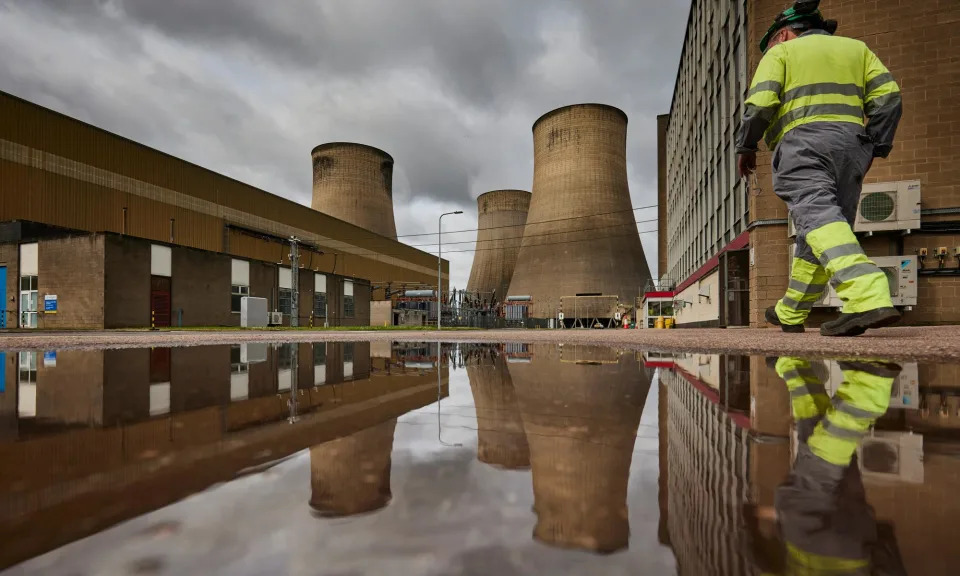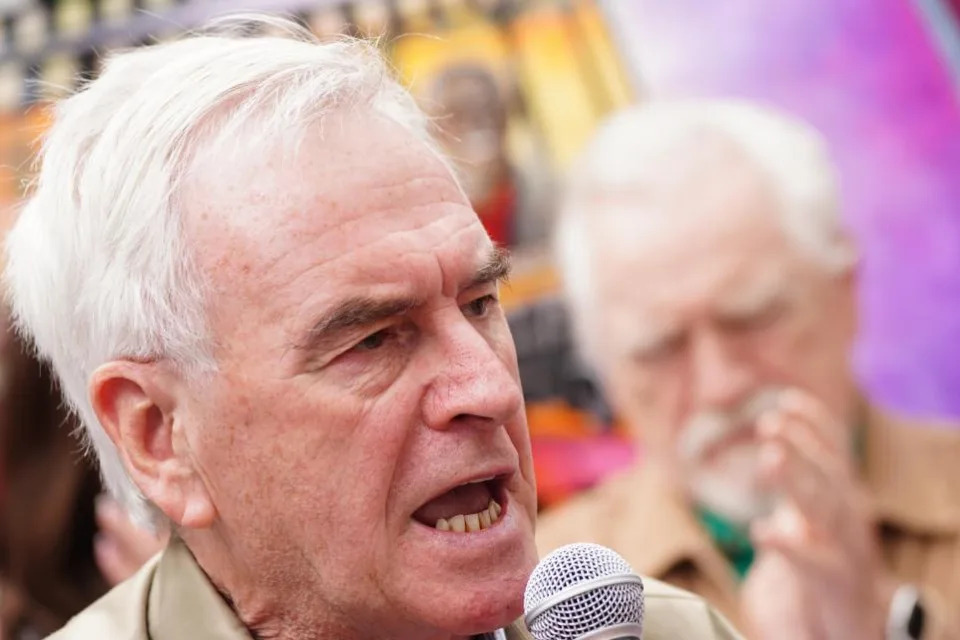Asda’s billionaire bosses knew payroll switch would spark crisis – but went ahead regardless
Luke Barr
Sat, 20 April 2024
Luke Barr
Sat, 20 April 2024

Mohsin Issa has made clear Asda's IT changeover is one of his top priorities - Jon Super
Asda’s billionaire bosses forged ahead with a botched IT transition despite being warned in advance that thousands of workers would be paid incorrectly, The Telegraph can reveal.
Senior figures were told in advance of the problems underlying the changeover, which has impacted 30,000 employees and left some hundreds of pounds out of pocket.
The IT changeover is being overseen by the company’s billionaire co-owner Mohsin Issa, who has made clear it is one of his top priorities.
The crisis has led to calls from unions for Mr Issa to apologise. The revelation that he was warned about issues with payroll ahead of the transition are likely to only heighten pressure on the billionaire tycoon.
Problems relating to the payroll first arose last month. Asda has been unable to fix the issue since.
The ongoing payroll crisis at Britain’s third-largest supermarket led to further problems on payday last week, with internal systems inundated with complaints. Some employees were underpaid while others were overpaid.
Financial pressures led to store managers making £200 petty cash payments to affected staff last month, although it is understood this will not be the case this time around.
A senior employee at Asda said there had been “thousands and thousands of complaints”, adding: “We knew it was going to happen.”
In response to the latest issues regarding pay, a GMB spokesman said: “GMB reps have been meeting with Asda management consistently over this issue.
“We have asked for simple things to protect colleagues – for example, adequate levels of petty cash to cover any underpayments. We have also asked for a public apology from Mohsin Issa who had overseen what is fast becoming a shambles.
“Asda knew how problematic these pay rounds were going to be but continued regardless – Mohsin Issa must bear responsibility for the stress and anguish this is causing hard-working Asda colleagues.”
An Asda spokesman said: “The first payroll run with a large-scale systems migration rarely passes without any issues in any industry.
“For Asda colleagues, we unreservedly apologise to those impacted and continue to work with colleague representatives, including our unions, to rectify any outstanding issues – as a top priority.
“For the April payroll, Asda can confirm that the number of payroll queries was significantly reduced.”
The latest payroll debacle has fuelled tensions internally, coming against a backdrop of cost-cutting across the business driven by a growing debt finance bill. Asda is struggling under the weight of billions of pounds of debt and battling falling market share.
Details of the challenges facing Asda come just days after it emerged Zuber Issa, Mohsin’s brother, was nearing a deal to sell his 22.5pc stake in the retailer.
The proposed sale of his shares to TDR Capital will hand majority control of the business to the private equity giant, which helped to finance the Issa brothers’ 2021 takeover of the supermarket.
The deal would increase TDR’s ownership of Asda to around two-thirds.
Billionaire Issa Nears Deal to Sell Asda Stake to TDR Capital
Sabah Meddings
Fri, 19 April 2024

(Bloomberg) -- TDR Capital is closing in on a deal to buy gas-station billionaire Zuber Issa’s stake in Asda as the private-equity firm tightens its grip on one of Britain’s biggest supermarket chains, according to people familiar with the discussions.
The agreement for Issa’s 22.5% stake would give TDR majority control and could be announced in coming weeks, the people said, asking not to be named with negotiations in flux. They declined to specify the terms being discussed. TDR’s holding in Asda would rise to about two-thirds, while the transaction would further the dismantling of the relationship between brothers Zuber and Mohsin Issa.
The brothers teamed up with London-based TDR to buy Asda for £6.8 billion ($8.45 billion) just three years ago from Walmart Inc. Their tenure has been rocky, with critics questioning the new owners’ commitment to Asda’s historic focus on keeping prices low.
As food and gas prices surged in 2023 amid historic inflation, Asda, the third-largest UK grocer, had to rebut claims by Britain’s antitrust regulator that it was gouging customers.
Born in Blackburn, England, the sibling duo founded EG Group and built up a $30 billion empire of gas stations and convenience stores across Europe, the US and Australia over the span of two decades, financing their ambitions with dozens of debt-funded deals. Since 2015, TDR has backed most of their significant acquisitions.
Read More: UK Brothers’ $30 Billion Empire Built on Debt Is Showing Cracks
However, higher interest rates have pushed up the cost of servicing their debts and squeezed profits, forcing the pair to sell down assets. The latest deal would further unwind their business interests from each other and from TDR.
Zuber Issa began talks earlier this year about selling his stake in Asda, and plans to step back as co-chief executive officer of EG Group.
Mohsin Issa also intends to relinquish day-to-day control of Asda to focus on running EG Group. A search to find a new CEO for Asda is already under way, with headhunters from Spencer Stuart conducting a search, according to people familiar with the matter.
When the latest maneuvering is complete, Walmart will retain its 10% stake in the grocer, with Mohsin owning 22.5% and TDR the rest, the people said.
Representatives for TDR, Asda and the Issa brothers declined to comment, as did Spencer Stuart.
EG Group sold the majority of its UK and Ireland fueling outlets to Asda last year, in a move which helped repair EG’s balance sheet but left the supermarket chain with heavy debt.
Most Read from Bloomberg Businessweek
.jpg)















